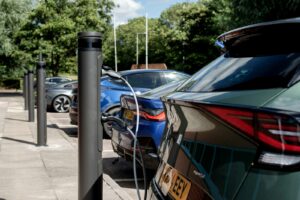The High Court has today ruled that unredacted legal documents in the £6 billion ‘Dieselgate’ litigation against several major car manufacturers must be made public.
Environmental campaign groups Mums for Lungs and ClientEarth brought the application, arguing that public access to the unredacted documents was essential for transparency. The documents reportedly contain technical information about how these defeat devices operated, specifically, how they limited emissions controls under real-world driving conditions, potentially in violation of UK and EU law.
The case, which targets Mercedes-Benz, Ford, Nissan, Renault and Peugeot-Citroen, centres on allegations that these companies used illegal defeat devices in their diesel vehicles to manipulate emissions tests.
In accepting the campaigners’ arguments Mr Justice Constable ruled that there was no reason for the car manufacturers to continue enjoying ‘the benefit of a cloak of confidentiality’ which, he said, ‘would have the effect of disabling the public from understanding the issues.’
He rejected claims from the manufacturers that the material was commercially sensitive, stating that even if some confidentiality remained, the public interest in disclosing the documents ‘would remain squarely in favour’ of openness.
He also criticised the manufacturers for being ‘over-zealous’ in redacting information and attempting to shield allegations of ‘credible serious misconduct.’
As a result of the ruling, the unredacted documents will now be uploaded to a Sharepoint site and made available to the public ahead of the trial scheduled for October. The decision ensures that detailed information about the alleged defeat devices can be discussed openly in court.
Barrister Barney McCay, representing the two groups, argued that the redactions had concealed ‘allegations that go to the heart of the proceedings,’ and that withholding this information would undermine the principle of open justice. He emphasised the urgency of public access, citing ongoing legislative debates and growing public anxiety about air pollution.
Both ClientEarth and Mums for Lungs submitted evidence showing the health risks of diesel emissions, especially for children, and pointed to research suggesting that excess emissions from defeat devices could cause more than 200,000 premature deaths and over 150,000 new asthma cases in the UK and EU between 2009 and 2040.
The Department for Transport is continuing to investigate vehicles suspected of containing defeat devices. If these court proceedings confirm that emissions controls were disabled during most of the year, ClientEarth has said it will ask regulators to include this evidence in their ongoing investigations.
ClientEarth lawyer Emily Kearsey said: ‘Almost ten years after the Dieselgate scandal first broke out, we’re finally going to uncover key information that car manufacturers have refused to disclose. People have a right to know the full scale of the suspected wrongdoing – this judgment will finally shine a light on the extent of the allegations.
‘But that’s not the only win. Having access to these documents will also help drive urgent government action to track down excessively polluting cars still on the road today and order the responsible manufacturers to fix them. Today’s ruling is another crucial step towards cleaner air, better health and real accountability.’
Jemima Hartshorn, Founder of Mums for Lungs, added: ‘We are delighted with this outcome. The judge cut to the heart of the issue: we all have a right to understand which car manufacturers are alleged to have produced cars that are the most polluting; with millions of them still driving on our roads and potentially making our children sick, every breath they take.
‘We are now one step closer to holding these companies to account and hope the government will finally take steps to prioritise children’s health.’


















Leave a Reply